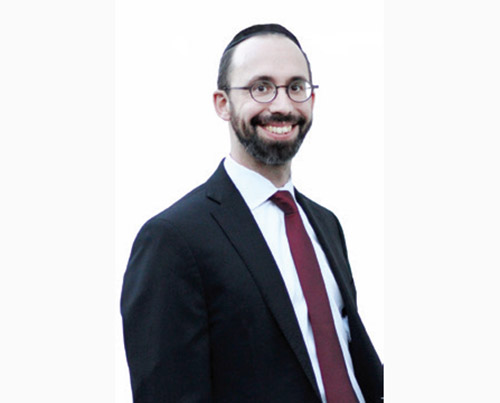
A friend of mine discovered a growth and underwent tests. The results put him into an exclusive club no one wants to join: cancer. He underwent surgery, chemo treatments and radiation. Throughout this ordeal I was deeply moved by his attitude and trust in Hashem. In one conversation he told me, “Hashem has a plan for me. Whatever happens is meant to be.” His words linger with me to this day.
Everyone has challenges and setbacks that at times can be overwhelming, even depressing. Yet, we can get our needed inspiration to bounce back from individuals who undergo life-threatening situations and navigate their trials with courage and faith in Hashem. Their approach to life with such clarity in their belief in Hashem gives us our needed comfort and focus.
This reflects a fundamental life lesson in Parshas Shoftim. “Tamim tihyeh im Hashem Elokecha—you shall be wholehearted with Hashem, your God” (18:13). Since there is no punctuation in a sefer Torah, the reading of one verse can change by where one places a comma. The Ohr Hachaim Hakadosh says there are two ways to read this pasuk, depending where we place the punctuation. The word “tihyeh” can be read together with tamim: “You shall be wholehearted with Hashem…,” meaning that you should have unwavering belief in Hashem and then Hashem will be with you. Or, we can place the comma after the word tamim, with the end of the verse saying “tihyeh im Hashem”—if you will be wholesome, then you will be with Hashem. The Torah wrote this ambiguity on purpose because both readings are correct! The Torah is telling us that if one is “tamim,” then he is with Hashem. This explains Rashi, who comments that if we are “tamim,” then Hashem will be proud to consider us “amcha and nachlascha”—His nation and His representatives.
But what’s the true meaning of being “tamim,” wholesome? The root of the word is “tam”—simple. Yaakov Avinu is referred to as “ish tam,” a simple man. One of the four sons discussed in the Haggadah on Seder night is the Tam—the simple son. Usually this attribute connotes simple, as in not being learned, and is not referred to with the greatest sense of praise. So why the praise of simplicity?
There are two types of simplicity. Simplicity can come from plain ignorance, or it can be seen in someone who is very knowledgeable, yet acts in a simple, straightforward manner, without any deviousness. The latter person lives his life with a simple reliance on Hashem. Be it in business, communal affairs or in relationships, this person acts in a straightforward and wholesome way, without any trace of deviousness. It’s not an easy task! A person who is very intelligent can use this attribute to achieve an unfair advantage over his fellow man. It takes a special strength of character to be very learned and still put simple reliance in Hashem in every aspect of our lives, as did Yaakov Avinu, without any need to act in a devious manner,.
There’s another point to bring out in this verse. In the sefer Torah, the letter Tav in the word “tamim” is written larger than all the other letters. The Baal Haturim explains this means someone who behaves with temimus is considered as if he fulfilled the entire Torah, which is comprised of all the letters from aleph to tav.
It’s a most appropriate lesson for these early days of Elul. Rav Avrohom Schorr quotes Rabbeinu Ephraim who points out the numerical value of the words “tamim tihyeh” is 910—the same numerical value of the word Tishrei. Tishrei ushers in Rosh Hashana. Tishrei begins our new year. It’s a powerful reminder that as we begin a whole new cycle of life with Tishrei, our focus should be on making ourselves tamim—wholesome and simple in our faith in Hashem and in our practice of the Almighty’s mitzvos.
By Rabbi Baruch Bodenheim
Rabbi Baruch Bodenheim is the associate rosh yeshiva of Passaic Torah Institute (PTI)/Yeshiva Ner Boruch. PTI has attracted people from all over northern New Jersey, including Teaneck, Bergenfield, Paramus, Rockaway and Fair Lawn. He initiated and continues to lead a multi-level Gemara learning program. Recently he has spread out beyond PTI to begin a weekly beis midrash program with in-depth chavrusa learning in Livingston and Springfield. This year he joined Heichal Hatorah in Teaneck as a Gemara iyun rebbe. His email is [email protected].










